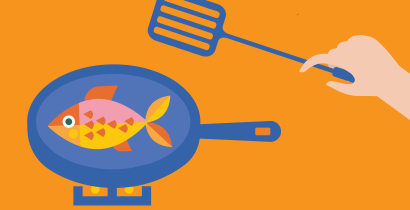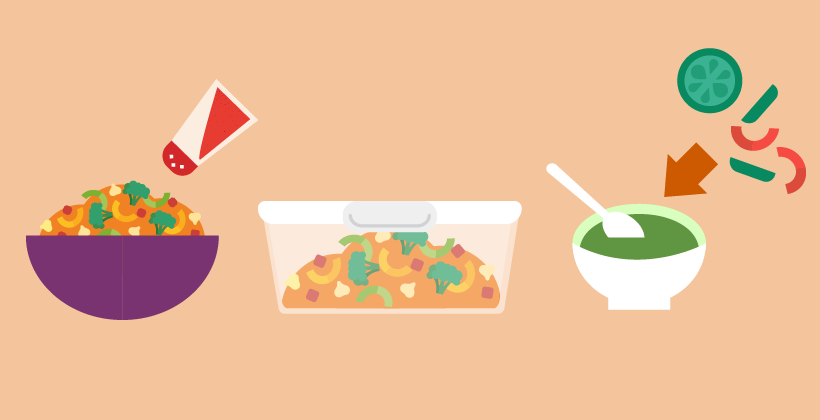How to eat healthily on a budget
Last Updated : 23 March 2011In these economically tough times a substantial number of Europeans are struggling to afford food, and Europeans everywhere are trying to make savings on their food bills. There is a common misconception that all healthy food is expensive. Although it might require some extra planning and reflection it is possible to eat healthily on a limited budget.
Spending cuts
A 2010 Flash Eurobarometer survey monitoring the social impact of the current economic crisis reported that as many as one in five Europeans struggled to buy food, or other daily necessities on at least one occasion in the twelve months prior to the survey.1 With the unstable financial situation, people everywhere are worrying about the future and trying to cut costs. One obvious target is the food bill.
Home cooking cheaper
A recent American study assessed the cost of shopping for foods to meet national dietary recommendations in a supermarket, compared to eating primarily convenience foods from modern restaurants.2 Foods purchased in supermarkets included bulk buy fruit, frozen vegetables, chicken breast, lean meat, pasta, breads, breakfast cereals and dairy produce. Meals purchased in the modern restaurant outlet typically consisted of a sandwich, chicken nuggets, hash brown potatoes, French fries and juice, coffee or soft drinks. Analysis revealed that the cost per calorie of the convenience diet was 24% higher than the home-cooked diet. However, this calculation did not take into account the private infrastructure costs for cooking, nor the time needed to buy and cook the food, thus overall savings may be somewhat less. Unfortunately, comparable data from Europe is lacking.
Guidelines encourage cheaper foods
It is commonly believed that eating healthily is expensive, but the variety of choice in today’s supermarkets provides a spectrum of alternatives. In addition, dietary guidelines recommend only small amounts of costly items like meat, fish, chicken and cheese. In fact, we should be eating more beans, lentils and other inexpensive foods such as (whole grain) breads, rice, pasta and other cereals. In practical terms this means more beans and less meat in your chilli, or pasta with less cheesy sauce. Regarding fruit and vegetables, fresh seasonal produce usually does not cost much. But also consider frozen and canned options, which are available year-round and contribute just as much to the recommended fruit and vegetable intakes. Moreover, given the safety and nutritional quality of conventional foods, more expensive organic foods do not warrant inclusion if there are budgetary restraints. So keep your eyes open when grocery shopping; look for special offers and, more importantly, only buy what you know you are going to eat.
Minimise food waste
In Europe we throw away large amounts of food each year, much of it still in its original packaging. This is mainly because either the food goes off before we get round to eating it, or we cook too much and throw away the rest. Websites have been set up to help us minimise food waste, often providing tips on optimised portion control, keeping food fresh for longer, and recipes for using up leftovers.
Always have a plan!
A good way to cheap and healthy eating without wasting food - is to have a plan! Spend half an hour or so deciding on your menu for the week, look in recipe books or research some of the many helpful websites that have plenty of inexpensive healthy meal ideas. Check what you already have in your store cupboard, make a list of additional ingredients, then keep to your list when you go shopping. Eating before you go food shopping may help you not to buy on impulse. Being hungry tends to lead to lots of extras in the trolley. The result: ingredients that go together rather than hang around going off, time saved each night as you know what you are cooking, and healthy tasty meals that won’t break the bank.
Some frugal food tips
- Buy vegetables and fruit when in season, and cook from ingredients when you can
- Devise a weekly healthy low-cost menu
- Write a shopping list and stick to it
- Rotate food in your fridge/cupboards so they do not go out of date
- Measure out portions to cut waste
- Find out how to use leftovers
- Cook double and freeze half for another day
- Supermarkets often have perishable items reduced in price at the end of the day or at week-ends, where they are approaching their sell by date
- Share special offers/bulk buys with a friend or freeze down for later use



